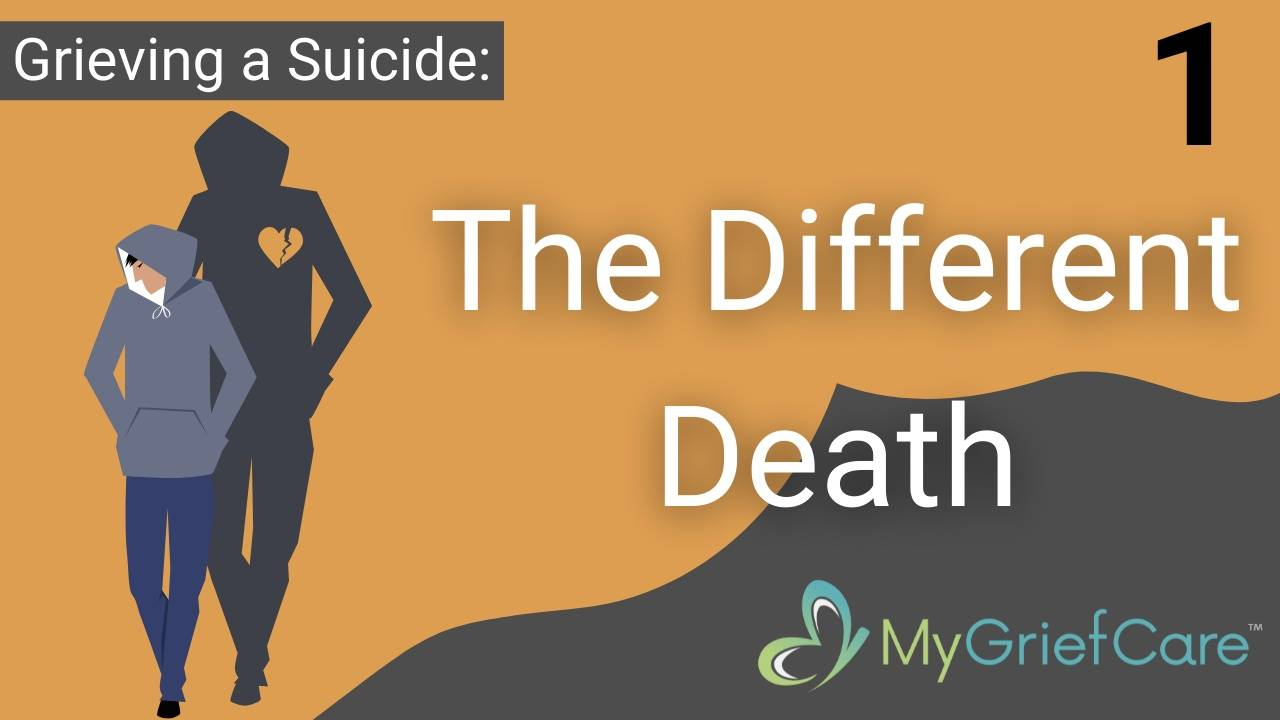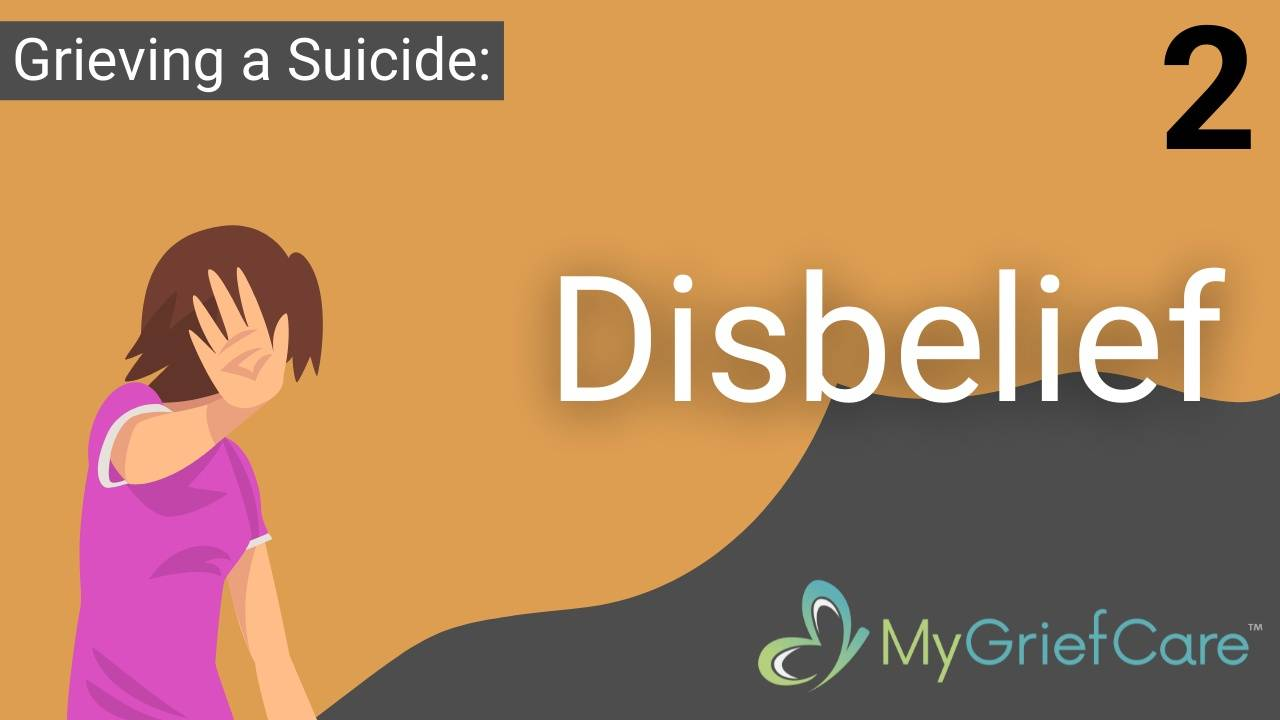- Introduction
- Understanding Grief
- People Grieve Differently
- The Brain Fog of Grief
- The Vocabulary of Grief
- Grievers Don’t Need to be Fixed
- Misconceptions About Grief
- There Are No Orderly and Predictable Stages In Grief
- When Caring People Say Dumb Things When You’re Grieving
- What to Say to Others When You’re Grieving
- The Impact of Who you Lost and How you Lost Them
- Heavy Grief Days
- The Grief Letter
- Ways to Remember Them
- Permissions for Grievers
- Creating Bright Spots in the Midst of Grief
- Why Are Many Grievers Not Comfortable Crying In Front of Others?
- Why Grievers Don’t Need to Be Strong
- Do I Just Need Time to Heal From Grief?
- Why Do Grieving People Get the Message They Shouldn’t Be Sad?
- Is Staying Busy Good for Grief?
- The Isolation of Grief
- Can You Fill the Void Left by the Death of Loved One?
- How Long Does the Pain of Grief Last?
- How Do You Get Over Grief?
- I Don’t Want to Forget My Loved One Who Died
- Relationships Change After Loss
- Why Don’t Friends and Family Understand Your Grief?
- How to Tell Others What You Need in Your Grief
- Grief Can Cause You to Re-evaluate Relationships
- I Lost My Spouse and My Friends
- All the Phases in the Grief Journey
- I’m Grieving and Just Barely Surviving
- Why Do I Feel Like I Am Just Existing in My Grief?
- When Will I Be Ready for Grief Counseling?
- Can You Heal Your Grief?
- Living Again After Losing a Loved One
- How Grief Affects Mental Health
- Grief & Depression
- How Trauma Affects Your Grief
- Co-Dependency and Grief
- Should I take medication for my grief?
- The Uniqueness of Grieving A Suicide
- Suicide Shock: I Can’t Believe They Did It
- Feeling Blame and Shame After a Suicide
- The Abandonment of Suicide
- The Stigma of Suicide
- Interview with widow who lost two husbands by suicide
- Losing Your Husband to Suicide
- What To Do With Your Loved One’s Belongings After They Die
- No Cost Financial Coaching & Planning for Widows: Chris Bentley
- Hope When Shattered By Grief
- Answers to Your Questions About Grief
- Introduction
- Is Being Angry at God a Sin After My Loved One Died?
- Where Did My Peace, Joy and Gratitude Go after I lost my loved one?
- Can Grief and Hope Co-Exist?
- Why Does God Heal Some People But Not Others?
- Is Suicide an Unforgivable Sin?
- Why Do I Dislike Platitudes and Bible Verses?
- Why Did God Let My Loved One Die?
Grieving A Suicide
6 Episodes
All Series
-
Foundations Of Grief
14 Episodes -
Misconceptions About Grief
12 Episodes -
Relationships After Loss
5 Episodes -
The Grief Journey
6 Episodes -
Grief & Mental Health
5 Episodes -
Grieving A Suicide
6 Episodes -
Conversations On Grief
4 Episodes -
Grief Talks
1 Episodes -
Questions Grieving Christians Ask
8 Episodes
Grieving A Suicide
6 Episodes
Episode 5 : The Stigma of Suicide
Downloads
Episode NotesThe Stigma of Suicide
Perhaps you feel as though you’ve been assigned to wear a big scarlet “S” viewed by everyone around you. You may believe others see you and your loved one in judgmental ways. You may see yourself through the lens of stigma.
What comprises this societal stigma? Let me share some of the more common societal beliefs about suicide.
People often believe that:
- Suicide is the ultimate selfish act of a weak-willed person
- Suicide is a death carried out to punish survivors
- Suicide means the deceased was, by definition, seriously mentally ill
- Suicide only happens with those from a dysfunctional family
- Suicide is an unforgivable sin
- Suicide is not a proper topic of conversation
And, certainly, there are more suicide-related misconceptions out there. Some of these beliefs even touch on truth, but a more thorough and nuanced understanding of suicide shows us that an individual’s act of suicide is anything but simple.
Some may believe that a person must be seriously mentally ill to take their own life. Well, there are indeed clear statistical correlations between some specific mental illnesses and suicide. But suicide and mental illness are not the simple cause and effect relationship that many believe it to be.
A better way, I think, to make sense of the underpinnings of suicide, is thinking of basic symptoms that tend to precede a suicide.
As a therapist, I have observed that the victim of suicide was experiencing strong interwoven feelings of fear, pain and hopelessness before taking action. Their fears may or may not seem realistic, their pain may be physical, psychological or both, and their overpowering sense of hopelessness has become an impenetrable fog blocking their ability to see the potential for a different future.
A struggling person at the point of carrying out a suicide has (at least momentarily) lost a clear sense of self-determination. They believe their sole remaining option is to choose whether or not to continue living a life they deem intolerable. They want their pain to end and are blind to other ways to alleviate it. And they don’t want you or anyone else to stop them at that point. Please take a moment and let that soak in. Failing to predict and prevent a person’s suicide is because they planned it so that you could not predict or prevent it.
Because of these misconceptions and the shocking nature of suicide, we can errantly begin to see that person’s life only through a lens tainted by his manner of death. It follows then that you may begin to remember your loved one that way.
A recent client of mine told me about her experience with exactly that issue: her husband had taken his life. She said, “All people seem to remember was his tragic death. But he was so much more than that. He was a really good man, a caring father and a loyal friend to many. He should be remembered for who he was and how he lived for over 50 years!”
Do you think she is right? Well, ask yourself: do you want the memories of your loved one to be mostly about their manner of death? Their choice to die is undoubtedly not how you wanted your relationship to end. And I don’t mean to minimize how shocking, painful and difficult their death is for you.
When you are ready, it may help you place the tragedy of their death into the bigger perspective of your overall relationship. Looking at the total relationship is probably the best way to address your loss and to put order to your memories of your loved one.
KEY POINTS:
- The societal stigma of suicide, sadly, does exist. And it is comprised by overly simplistic, conflicting and sometimes highly inaccurate beliefs.
- We are sometimes responsible for projecting stigma upon ourselves and on our loved one, more than the opinions of others.
- Understanding suicide is difficult, highly nuanced and never simple. And all too often, survivors like you are left to make their best guess as to why your loved one decided to die by their own hand.
- People should be remembered for how they lived, more than how they died.
STEPPING STONE:
- Ask yourself: Am I focused more on my loved one’s manner of death than I am reflecting on our life together?
- Then consider: What do I want to remember about my loved one?
REFLECTION:
How should a person’s story be told? Should we inscribe their life’s story in our hearts based exclusively on highlights or “lowlights?” Or should we give even more weight to who they were with us in the mundane and ordinary days of our lives together?


